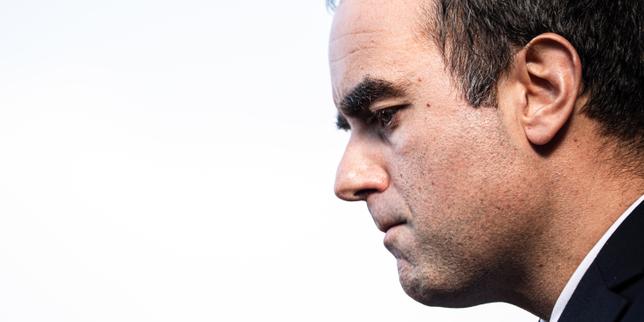French Government Faces Budget Pressure Amid Standoff Over Pension Reform Suspension
The French government grapples with budget deadlines and political threats, including opposition to suspending 2023 pension reforms and debates over tax and spending cuts.
- • A censure motion against Prime Minister Sébastien Lecornu's government may occur this week due to pension reform disputes.
- • Philippe Juvin supports potential CSG reduction but stresses spending cuts and deficit targets.
- • Opposition parties demand suspension of pension reform, seen as a red line by UDI president Hervé Marseille.
- • The government must negotiate with the Socialist Party despite risks of instability and additional budget complications.
Key details
The French government is navigating a tense political landscape as it faces urgent budgetary challenges without a new government formation timetable, while opposition to suspending the 2023 pension reform intensifies.
Prime Minister Sébastien Lecornu’s second government is under threat of a censure motion potentially as early as this week, following his general policy statement, according to Hervé Marseille, president of the Union of Democrats and Independents (UDI). Marseille stressed that the government’s stability is precarious even before its official formation, largely due to demands from the Socialist Party (PS) for a suspension of pension reforms enacted in 2023. Marseille described this suspension as a “red line” and opposed reopening pension reform, warning that the PS’s strong influence risks complicating budget approval processes and could lead to hostile parliamentary outcomes.
Against this backdrop, Philippe Juvin, the budget rapporteur at the National Assembly from Les Républicains, indicated a willingness to consider reducing the contribution sociale généralisée (CSG) in the upcoming budget bill to increase net salaries. Juvin, however, cautioned on how loss of revenue from a CSG cut would be offset and emphasized that government flexibility lies mainly in cutting expenditures rather than raising taxes. He criticized the proposed €6 billion state spending cuts as insufficient, suggesting further savings could come from sectors like education, where declining birth rates could justify eliminating 50,000 posts by 2032.
Juvin underscored the importance of meeting the deficit reduction target below 3% of GDP by 2029 to maintain market and European partner confidence. He also firmly opposed abandoning pension reform, highlighting that such a move would undermine France's credibility. Finally, Juvin warned against dismissing the constitutional article 49.3, historically essential for passing budgets swiftly amid parliamentary deadlocks.
The government faces a delicate balancing act: negotiating with the Socialist Party to avoid a censure vote while resisting revisiting contentious pension reforms amid budget pressures and political instability. Both Juvin and Marseille’s comments illustrate the high stakes associated with the upcoming budget discussions and political maneuvering in the National Assembly.
This article was translated and synthesized from French sources, providing English-speaking readers with local perspectives.
Source articles (2)
Source comparison
Pension reform stance
Sources disagree on the approach to pension reform negotiations
lemonde.fr
"Juvin firmly opposes the abandonment of pension reform, arguing that it would undermine France's credibility with markets and European partners."
lefigaro.fr
"Marseille expressed concern about the government's stability, emphasizing that the Socialist Party is demanding the suspension of the 2023 pension reform."
Why this matters: One source indicates that the Socialist Party is demanding the suspension of the pension reform, while the other source suggests that a key figure believes abandoning the reform would undermine credibility. This disagreement affects understanding of the government's negotiation strategy and the political landscape.
Latest news
Katy Spicher Sues French State for Denial of Justice Over Unsolved 1983 Murder of Her Mother
French Public Sees Rise in Political Violence Amid Pre-Municipal Election Tensions
Businesses Drive French Economy Amid Rising Financial Challenges for Youth
France Climbs to 4th Place in 2026 Winter Olympics Medal Table After Biathlon Relay Gold
XV de France to Field Largely Unchanged Lineup Against Italy in Six Nations
France and India Deepen Strategic Partnership with Focus on AI Regulation and Defense Cooperation
The top news stories in France
Delivered straight to your inbox each morning.


